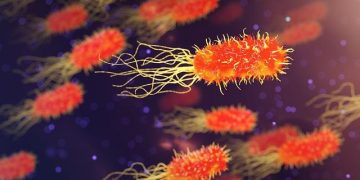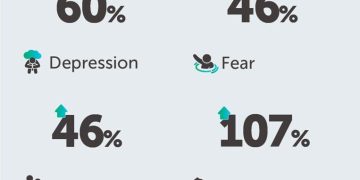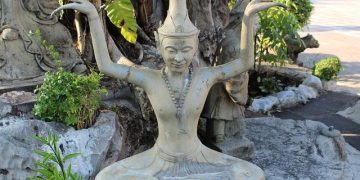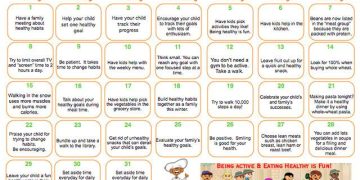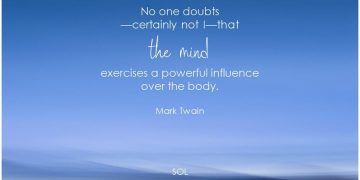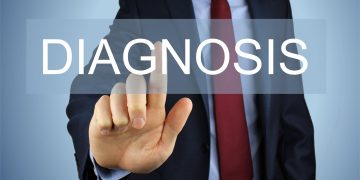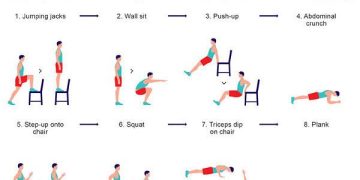Welcome to a bold new frontier in modern healthcare – a path that ventures beyond the predictable landscape of symptoms, diving deep into the heart of holistic disease management. The journey awaits as we aim to enlighten you on principles above and beyond mere symptom checklists that form the conventional methods of disease diagnosis. As every individual is unique, understanding the person in their entirety – their lifestyle, history, environment – becomes crucial in managing ailments in the most complete and conscientious way possible. Prepare yourself for an enthralling exploration of an integrated approach that transforms fragments of medical history into a comprehensive canvas of wellness. From the roots of disease to the potential of prevention, let us chart an enlightening course through this comprehensive guide to holistic disease management. So strap in, keep an open mind, and get ready to reimagine healthcare as you know it. Empowering Wholeness: The Integral Role of Mind and Spirit in Healing
The journey towards holistic disease management is a road that’s less traveled, often overlooked in favor of traditional and more tangible treatments. But beneath our physical manifestations of disease lies a vast, interconnected network of mental and spiritual dimensions that play a crucial role in our well-being. Both positive and negative emotions, experiences, and belief systems inherently influence our health.
These “unseen” facets of wellness – our thoughts, emotions, beliefs, and spiritual outlooks – can powerfully shape our healing process. Harnessing the power of the mind and spirit can stimulate the body’s innate healing abilities. Approaches like meditation, prayer, visualization, and positivity exercises are being integrated into disease management plans, complementing physical treatments and significantly boosting recovery outcomes.
Unlock the Healing Powers Within: Techniques for Stress Reduction and Emotional Balance
Stress and emotional imbalance fuel disease progression and hinder recovery. On the flip side, relaxation and emotional well-being turbocharge healing. Deep belly breathing, mindfulness practices, yoga, and progressive muscle relaxation, can relieve stress and promote emotional balance. These self-care techniques not only trigger relaxation responses but also strengthen emotional resiliency, enhancing our capacity to cope with disease.
Moreover, therapeutic practices like, Cognitive Behavioral Therapy (CBT), and Emotional Freedom Technique (EFT), can be substantially beneficial. CBT focuses on modifying negative thought patterns and stressful reactions while EFT uses fingertip tapping on certain body’s energy hot spots to release emotional distress.
Food as Medicine: Dietary Recommendations for Holistic Disease Management
Advocating holistic healing, Hippocrates once said, “Let food be thy medicine and medicine be thy food.” And he wasn’t wrong. A balanced diet rich in whole grains, fruits, vegetables, lean proteins, healthy fats, and low in processed foods can fortify the immune system, regulate body functions, and shield against disease-causing factors. Particularly, antioxidant-rich foods combat harmful free radicals, combat inflammation, and prevent cellular damage.
Eliminating the consumption of processed foods and sugars, reducing alcohol intake and incorporating foods rich in Omega-3 fatty acids such as fish, nuts, and seeds, can help with holistic disease management. It’s also imperative to ensure a plenty of hydration, with water being the optimal choice.
Breathe Easier, Live Better: Exercise and Movement as Tools for Holistic Health
Exercise is a potent weapon against disease, capable of enhancing physical health, mental wellbeing, and emotional balance. Regular physical activity stimulates body-wide benefits – from cardiovascular health, muscular and bone strength, to hormone regulation, and immune function.
Moreover, exercises do not have to be strenuous to be effective. Even gentle exercises like walking, stretching, or on-the-spot marching can have therapeutic effects. More structured practices like Tai Chi and Yoga, promote relaxation, flexibility, and mindfulness.
Mother Nature’s Pharmacy: The Efficacy of Herbal and Natural Remedies in Disease Control
Mother Nature is a bountiful provider of healing substances, many of which are finding their way into mainstream medicine. Herbal and natural remedies, made from plants, have been used for centuries to prevent and treat diseases. These remedies work in harmony with the body, stimulating its healing mechanisms without the side-effects common with pharmaceutical drugs.
For example, turmeric has potent anti-inflammatory properties and can help manage conditions like arthritis. Similarly, Echinacea boosts the immune system, and St. John’s Wort can help with depression. However, always consult your healthcare provider before starting any new supplement regimen.
Shining Light on the Path to Wellness: Case Studies and Success Stories in Holistic Disease Management
Bearing witness to holistic disease management success not only illuminates the path to wellness but also inspires hope for those on a similar journey. From humble beginnings of utilizing mindset reprogramming and dietary changes to overcome debilitating diseases, these success stories offer valuable insight into the potential of body-mind integrative practices.
Take the case of Sandy, a breast cancer survivor, who credit a combined approach of conventional treatments and stress reduction techniques for her successful recovery. These testimonials underscore the necessity for a rounded approach to disease management and the transformative power of holistic healing.
As we sign off this narrative journey through the expansive field of holistic disease management, remember, the goal isn’t merely to subdue symptoms, but to heal on a deeper level. Beyond the realm of physical discomfort and distress, lies a domain rich with possibilities of repairing, revitalizing, and rejuvenating our minds and bodies. Our health, after all, is not a singular story but a tapestry woven from threads of our physical, emotional, psychological, and social well-being. This comprehensive guide merely turns the first few pages of holistic healthcare, nudging you to consider it as a resilient ally in your expedition to wellness. So, have courage, take charge, and step beyond symptoms into a world where disease management doesn’t just mean life but a healthier, happier, holistic life.



